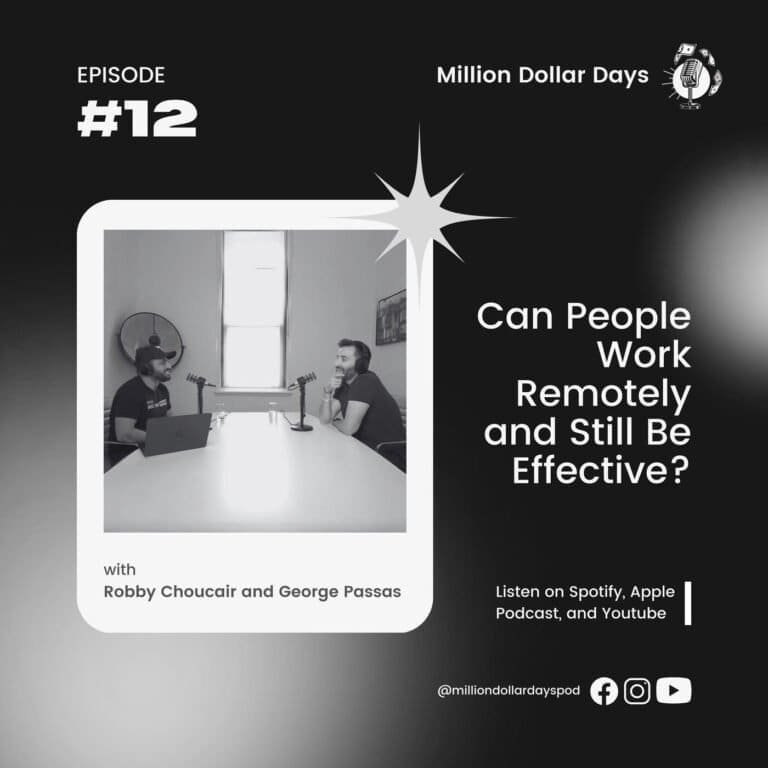In the ever-evolving landscape of the modern workplace, the core dynamics that drive a business’s success remain perennially relevant. Central to this is the composition and management of a team—a factor that can indeed be likened to striking gold. In the recent episode of the podcast, titled “Can People Work Remotely and Still Be Effective?,” hosts Robby Choucair and George Passas offer a deep dive into the mechanics of team synergy, the nuances of remote versus office culture, and the entrepreneurial journey from corporate structures to the autonomy of boutique firms.
The episode opens with a discussion on the critical role of employees and the concept of leveraging time—a principle that holds immense weight in the business sphere. The hosts argue against the common misconception that employees are merely an expense, positing instead that a well-chosen team member is an investment with the potential to yield significant returns. The importance of building a strong team transcends the traditional 24-hour workday limitation, as successful entrepreneurs often extend their effective hours by leveraging the collective hours of their workforce.
Moving onto the discussion about on-site versus remote work, we dive into how business owners champion the on-site work environment, citing its advantages in productivity and culture. We acknowledge, however, the efficiency gains remote work can offer, particularly in light of the pandemic’s reshaping of work habits. This sparks a conversation about finding the delicate balance between flexibility and maintaining a robust company culture.
The hosts then share their personal journey from a billion-dollar construction company to a boutique firm. This narrative underscores the transformative power of making strategic hires, as a single great employee can have a multiplying effect on a company’s growth trajectory. The discussion extends to the essence of redefining productivity in today’s workplace and the multiplying effect a supportive team culture can have.
Additionally, the episode delves into the intricate topic of work ethic and hiring criteria. Robby and George explore the contrasting work ethics between employees and business owners, discussing how a flexible work schedule can influence efficiency and job satisfaction. They also examine the potential pitfalls of a homogeneous team and the importance of fostering a culture where employees feel attached and valuable to the business.
In another chapter, they discuss the impact of personal work preferences and career paths on business operations. Resistance to change, especially in traditional industries like construction, is compared to the reluctance some have towards remote work arrangements. The conversation shifts to include the nuances of trust, productivity, and work-life balance.
One particularly resonant part of the episode addresses the transition from climbing the corporate ladder to starting a personal business. Here, the hosts highlight the strategic steps required for such a leap, the significance of valuing employees, and the adoption of a flexible, trust-based work culture.
Towards the end of the episode, the debate between working from home and office settings is revisited. The hosts reflect on their own experiences and consider the reality of workplace productivity, challenging the notion that one environment is inherently superior to the other.
To cap off the episode, Robby and George emphasise the need to build a strong team culture and facilitate employee growth, outlining plans for defining business values and conducting employee reviews. They advocate for transparent communication as a key driver for nurturing development and establishing a desirable workplace.
In summary, the podcast episode not only explores the logistical aspects of scaling a business but also delves into the human element that underpins any entrepreneurial venture.
